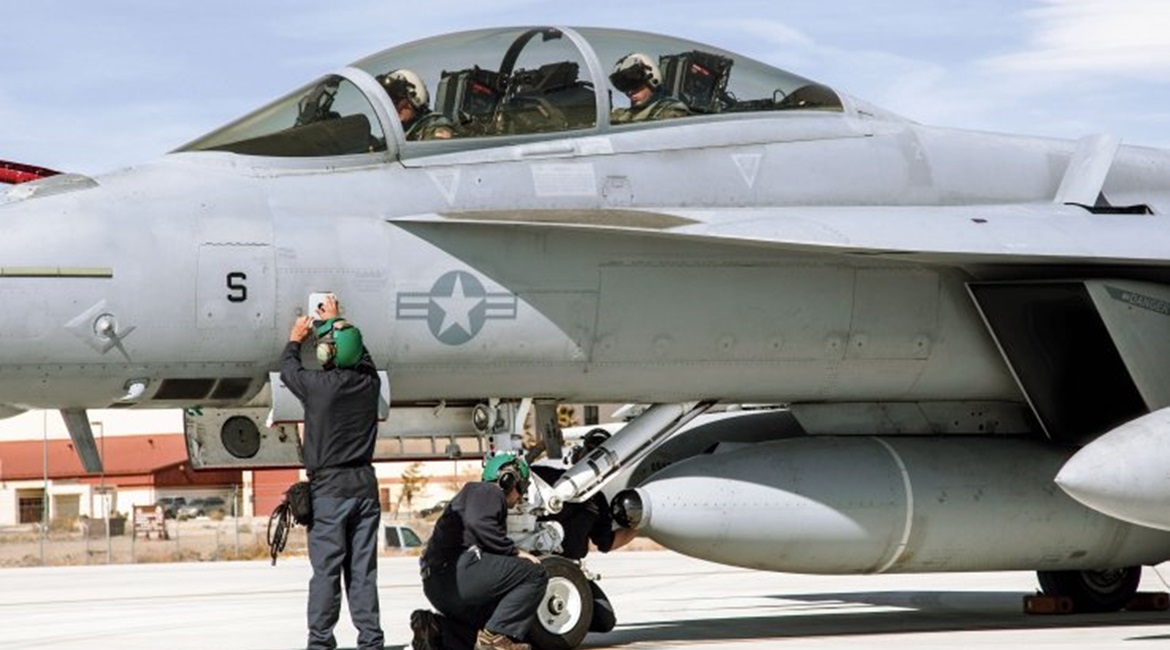
The Royal Australian Air Force (RAAF) is to equip its Boeing F/A-18F Super Hornets with the same AN/ASG-34 podded infrared search-and-track (IRST) system as carried by the US Navy (USN).

The Super Hornet is fitted with a podded IRST system that doubles as a centreline fuel tank. Already fitted to US Navy aircraft, it is also to be rolled out to the Royal Australian Air Force. (Lockheed Martin)
A sources-sought notification issued by the US Naval Air Systems Command (NAVAIR) on 2 October calls for 12 IRST systems to cover the RAAF’s fleet of 24 Super Hornets.
According to the notification, the contract is expected to run for 36 months, although no further details pertaining to timelines or contract values were disclosed.
Developed by Lockheed Martin, with Boeing and General Electric, the AN/ASG-34 IRST is a passive system geared at giving the Super Hornet the capability to locate and engage airborne and ground targets when use of the Raytheon AN/APG-79 active electronically scanned array (AESA) radar would give away the aircraft’s position.
Unlike most other IRST systems that are fully integrated with their host aircraft, the AN/ASG-34 is designed to be carried in a modified centreline drop tank. Boeing officials previously told Jane’s that locating the IRST underneath the aircraft has no adverse effect on its ability to identify and track aircraft that might be flying higher than the Super Hornet and that at 10 miles (16 km) from the target aircraft it will provide unlimited visibility up to 60,000 ft (as high as any target would fly).
Looking to read the full article?
Gain unlimited access to Janes news and more...






